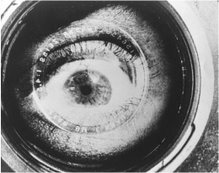
It’s as if Keanu Reeves is Il Mare, Sandra Bullock is The Lake House, and Roy Lee is the magical mailbox, except I haven’t seen The Lake House and I don’t want to compare Reeves to the original South Korean film. Roy Lee, the Korean American producer responsible for tainting so many great, East Asian films with American remakes such as The Ring, The Grudge, Eight Below, The Departed, and the upcoming My Sassy Girl, can also be blamed for The Lake House—the movie that probably prevented too many Americans from seeing Hyun-seung Lee’s popular romantic drama. But I won’t judge a movie I haven’t seen (even if I am against it in principle), so I’ll stop my rant here (for now).
Il Mare’s Korean title Siworae offers the best summary of the film, translated as “time-transcending love.” The English title refers to the name of the ocean-side house where the two main characters live alone, but not together, unfortunately, since there’s a two-year gap between them. Just before the new millennium, Eun-joo leaves a Christmas card in the mailbox when she moves out, beginning a correspondence with Sung-hyun, who lives in the same house, only in 1997. At first the letters confuse the pen pals, but then they realize the time-traveling capabilities of the mailbox they share. The romance between Eun-joo and Sung-hyun revolves, then, around the challenge of crossing the barrier of time that separates them.

Ji-hyun Jun, in her role preceding My Sassy Girl, gives an unrecognizable performance for anyone familiar with her animated role in the romantic comedy. This softer, more reserved Jun is just as charming, but her unbearable loneliness is what really complements the drama. Jung-jae Lee also proves his versatility as an actor, playing an emotionally vulnerable leading man that’s very different from his other role in 2000, an awkward, perverted Internet addict in Asako in Ruby Shoes. For such a premise, it’s incredible that the two actors form a believable chemistry while sharing essentially no screen time—a fascinating twist on the genre.
The cinematography isn’t anything too fancy, kept simple while showing off the large environments and households that the characters inhabit, emphasizing their isolation. There are also some sequences where the editing plays around with the space the couple share, as if collapsing time so they can physically connect. The whole time-traveling aspect never gets too gimmicky, luckily, and is highly engrossing until the very end. None of it seemed confusing to me while watching—it all just sort of drifted past me as I enjoyed the film. But when it was over, thinking about the chronology and the converging time-lines, it hit me like, “wait…what?!” Depending on your interpretation of Il Mare, this deceptively simple film can become absolutely mind-boggling. But I guess that’s something time-travel movies can pretty much guarantee.

No comments:
Post a Comment